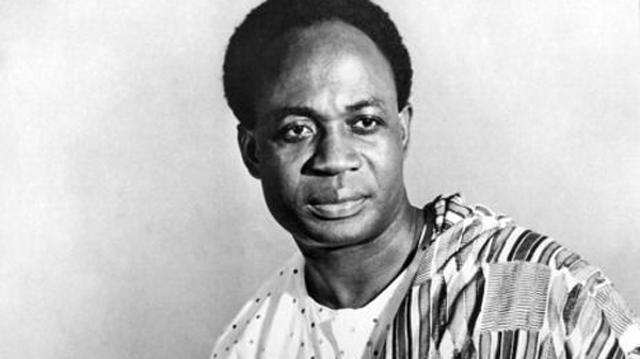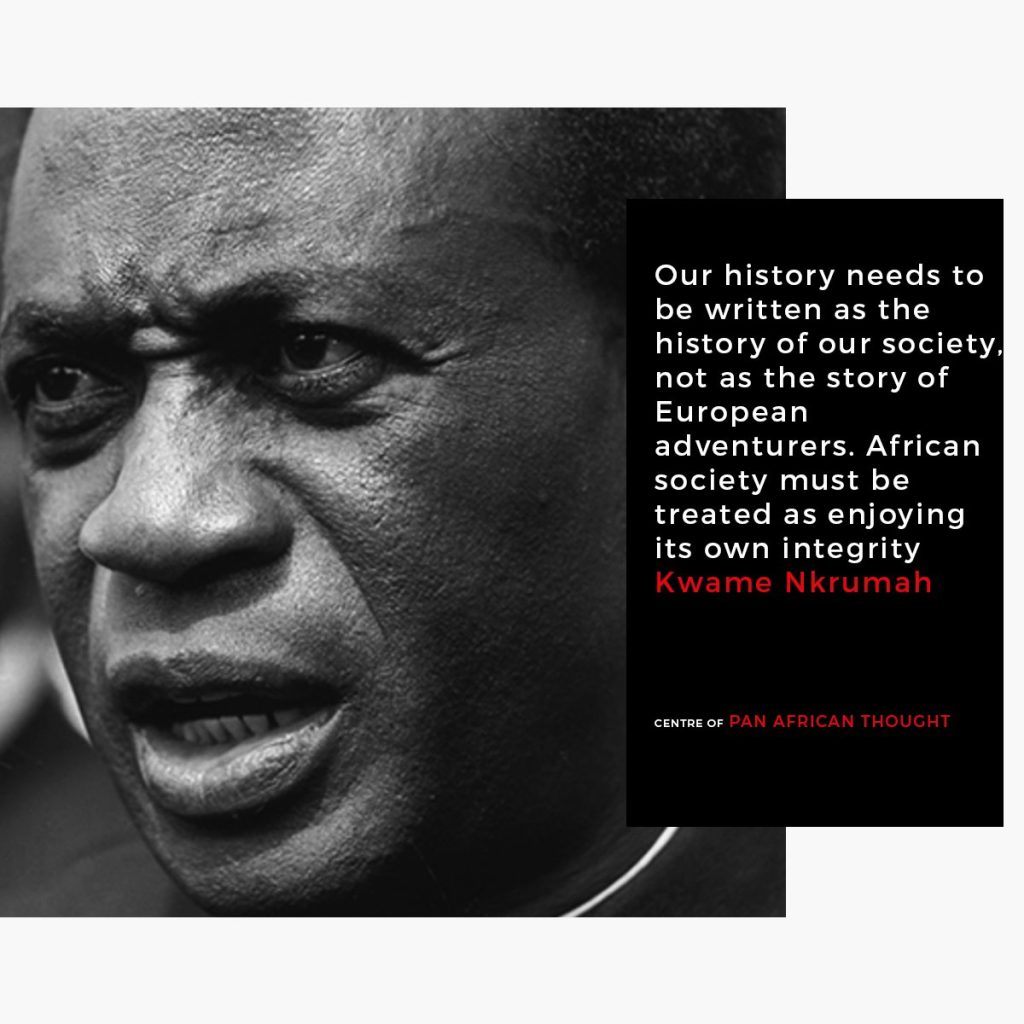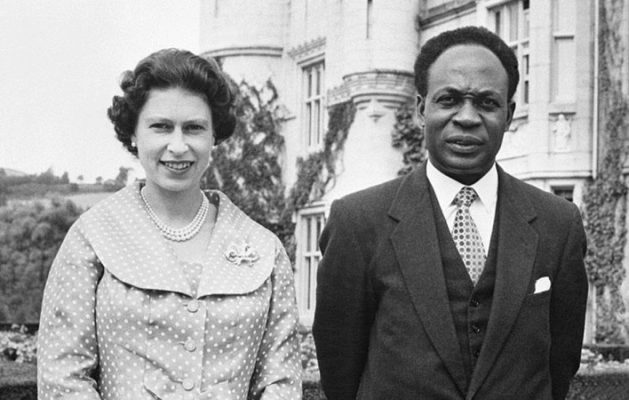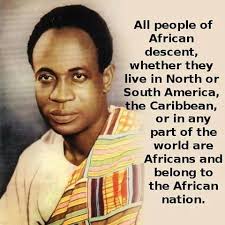Last Updated on March 17, 2023
Africa has a rich history of cultural diversity and vibrant political movements. Amongst the many influential leaders that have shaped the continent, Kwame Nkrumah’s contributions to Pan-Africanism stand out in African politics. His philosophy of unity, self-determination, and anti-colonialism ignited a spark across the continent. Thus, inspiring a generation of leaders to challenge colonial powers and fight for independence.
Today, we explore the enduring impact of Nkrumah’s Pan-Africanism on African politics and how it continues to shape the continent’s political landscape. From his ambitious vision of a united Africa to his relentless pursuit of justice and equality, Kwame Nkrumah’s legacy lives on, and his ideas continue to inspire a new generation of African leaders.

Kwame Nkrumah’s Contribution to Pan-Africanism
Kwame Nkrumah was a Ghanaian politician and statesman who played a pivotal role in the decolonization of Africa. He was born in 1909 in what was then the British Gold Coast and educated in Ghana, the United States, and the United Kingdom.
In 1947, he helped found the West African National Secretariat to coordinate the anti-colonial struggle in West Africa. Subsequently, in 1949, he became the general secretary of the United Gold Coast Convention. This was a political party that campaigned for independence from British colonial rule.
Kwame Nkrumah’s Pan-Africanism was based on the idea that African nations must unite to overcome colonialism and achieve independence.
It was also founded on the belief that unity among African nations was necessary for the continent’s economic and political development. Kwame Nkrumah’s advocacy for Pan-Africanism was influential in Ghana and across the African continent. It inspired a generation of leaders to fight for independence and self-determination. His book, “Africa Must Unite” is a discourse that sets out the case for the complete liberation and unification of Africa.
In 1963, Nkrumah played a key role in forming the Organization of African Unity (OAU), which aimed to promote solidarity among African nations. The OAU sought to coordinate its efforts toward political and economic development.
Kwame Nkrumah’s Philosophy of Pan-Africanism
Nkrumah’s philosophy of Pan-Africanism was grounded in the belief that African nations must unite to overcome colonialism and achieve independence. He believed colonialism had divided Africa, created artificial borders, and exploited its people and resources. Nkrumah argued that the only way for Africa to achieve economic and political development was for African nations to unite and work together.
He believed that African nations shared a common history and destiny. As such, the only way to overcome any problem the continent faced then or ever in the future was to come together.
Nkrumah argued that unity among African nations was necessary for the continent’s economic and political development. Without it, the former Ghanian President believed Africa would remain weak and vulnerable to external exploitation.
Kwame Nkrumah’s Pan-Africanism was also grounded in the principle of anti-colonialism and self-determination. He believed that colonialism had been a devastating force in Africa. Like Thomas Sankara of Burkina Faso, Nkrumah believed that African nations must fight for independence and self-determination.
In addition, Nkrumah also emphasized the importance of education and culture in African development. He believed that education was essential for developing a strong and informed citizenry. This is in line with Nelson Mandela’s strong belief that education is critical to African development.
Read: The Life and Legacy of Nelson Mandela: A Tribute to a Global Icon
Nkrumah argued that African nations must take control of their education systems. Africans must use education to promote their own cultures to achieve true independence and self-determination.

Significance for African Politics
Nkrumah’s philosophy of Pan-Africanism had a profound impact on African politics. His advocacy for unity and self-determination inspired a generation of leaders to fight for independence and challenge colonial powers.
His leadership in forming the Organization of African Unity (OAU) in 1963 marked a turning point in African politics. It represented a commitment to African coalition and cooperation.
Kwame Nkrumah’s philosophy of Pan-Africanism also had a lasting impact on the Pan-Africanist movement. The movement sought to promote solidarity among African nations and drew inspiration from Nkrumah’s ideas and leadership.
Nkrumah’s Influence on African Politics
Kwame Nkrumah became the first president of Ghana and a prominent figure in the fight for African independence and unity.
Establishing the OAU
Nkrumah advocated for creating a continental organization to coordinate African countries’ efforts toward political and economic development.
His efforts culminated in the Organization of African Unity (OAU) formation in 1963. The OAU was an important step towards African unity and cooperation, and it provided a platform for African nations to work together towards common goals. The OAU eventually evolved into the African Union (AU), which continues to promote African integration and development.
Advocating for Economic Independence
In addition to promoting the idea of Pan-Africanism, Nkrumah also advocated for African nations to take control of their resources and economies. He believed that African nations needed to control their destinies and that economic independence was essential for political independence.
Championing Anti-Colonialism
Nkrumah was a staunch advocate for anti-colonialism. He believed that African nations had the right to govern themselves. So, he worked tirelessly to promote the cause of independence. Nkrumah’s leadership in Ghana’s independence movement inspired other African nations to fight for their freedom.

His ideas about anti-colonialism and self-determination have become central to African political discourse today.
Read: The Independence Movements and Decolonization of Africa
Advocating for Education and Development
Nkrumah also believed that education and development were essential for African progress. He emphasized the importance of education in creating an informed citizenry and promoting economic growth.
The former Ghanaian president believed that African nations needed to invest in their education systems.
Nkrumah’s advocacy for education and development has had a lasting impact on African politics. Many African nations have made significant investments in education and development since Nkrumah’s presidency.
The Legacy of Kwame Nkrumah’s Pan-Africanism
Kwame Nkrumah’s legacy of Pan-Africanism has impacted Africa. His vision of African unity and cooperation has inspired generations of African leaders and continues to influence African politics and economics today.
The creation of the Organization of African Unity and the African Union are testaments to Nkrumah’s commitment to Pan-Africanism. And his advocacy for economic self-determination has influenced African economic policy.
Nkrumah’s legacy has left a lasting mark on the continent, and his ideas continue to shape the future of African nations.
The Kwame Nkrumah Pan-African Culture Centre in Egypt was created to give Africans in particular and humanity in general access to a reputable research and educational facility that is solely focused on fostering an understanding of the history and culture of Africa.
In addition, the Kwame Nkrumah Mausoleum was dedicated in 1992 and is located in Accra.
Read: The Top 10 Most Influential African Leaders
Critiques of Nkrumah’s Pan-Africanism and its Limitations
While Kwame Nkrumah’s philosophy of Pan-Africanism has significantly impacted African politics and culture, it has also faced critiques and limitations.
Some of the critiques of Nkrumah’s Pan-Africanism are:
- Ideological differences: While Pan-Africanism promotes unity among African nations, ideological differences among African leaders have hindered the realization of this goal. Leaders have often prioritized their interests over Pan-Africanism, leading to conflict and division.
- Centralized leadership: Nkrumah believed in centralized administration as a means to achieve Pan-Africanism. However, this approach has been criticized for limiting individual freedoms and stifling democracy.
- Economic challenges: Nkrumah’s call for economic self-determination has faced challenges like limited resources and infrastructure in many African nations. The high cost of developing local industries has also hindered the realization of economic self-sufficiency.
- Political instability: Pan-Africanism has faced many challenges. For example, political unrest like military coups and civil wars have featured significantly in African nations. These issues have hindered efforts toward African unity and cooperation.
In addition to these critiques, Kwame Nkrumah’s Pan-Africanism movement also faced limitations. Despite his efforts toward African unity and self-determination, Nkrumah’s presidency was plagued by corruption and economic mismanagement.
His efforts towards Pan-Africanism were resisted by Western powers, who sought to maintain their influence and control over African nations.
Why Kwame Nkrumah’s Pan-Africanism Efforts Need to Be Discussed in Political and Educational Settings
Exploring the impact of Kwame Nkrumah’s Pan-Africanism on African politics is crucial for understanding the continent’s history and its present-day challenges. Nkrumah’s vision of African unity and self-determination was a response to the injustices of colonialism and a call to action for African nations to take control of their destinies.

Past rulers like Muammar Gaddafi have sought to take Nkrumah’s vision of a united Africa to the next level. Before his assassination in 2011, there were credible reports that Gaddafi planned to create a United African State.
Studying the impact of Nkrumah’s Pan-Africanism can also help us understand the challenges and successes of African politics in the post-colonial era.
It can shed light on the obstacles that African nations have faced in achieving true independence and cooperation. This will, in turn, reveal how African leaders have responded to these challenges.
By exploring the impact of Nkrumah’s Pan-Africanism, we can gain insights into the complexities of African politics. It can also serve as a source of inspiration for future generations of African leaders as they seek to build a more just, equitable, and prosperous continent.
Before you go…
Hey, thank you for reading this blog to the end. I hope it was helpful. Let me tell you a little bit about Nicholas Idoko Technologies. We help businesses and companies build an online presence by developing web, mobile, desktop, and blockchain applications.
We also help aspiring software developers and programmers learn the skills they need to have a successful career. Take your first step to becoming a programming boss by joining our Learn To Code academy today!
Contact us if you need more information or have any questions! We are readily available.











